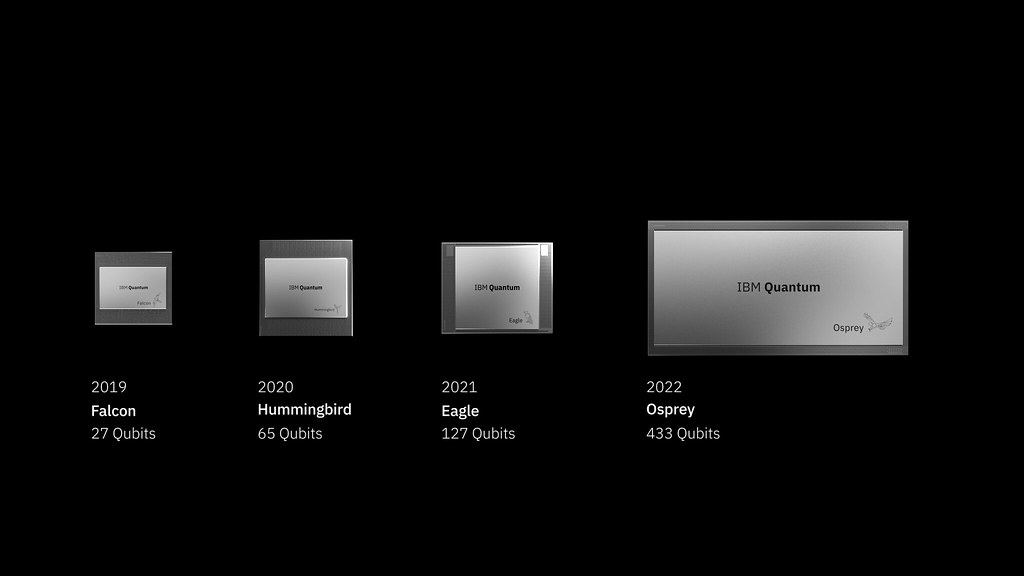IBM Osprey has the largest qubit count of any IBM quantum processor, more than tripling the 127 qubits on the IBM Eagle processor unveiled in 2021. This processor has the potential to run complex quantum computations well beyond the computational capability of any classical computer. For reference, the number of classical bits that would be necessary to represent a state on the IBM Osprey processor far exceeds the total number of atoms in the known universe.
The basis of a quantum processor is the qubit – a basic unit of quantum information that can assume more states than a traditional computer. The simplest way of explaining it is by imagining an 8-bit computer versus an 8-qubit computer: in the conventional system, where each bit can either be 0 or 1, you could have 00000000-11111111 and any combination in between. In an 8-qubit system, you could theoretically have 00000000-99999999. As such, each qubit added to a processor represents a profound leap in capability and potential processing power.
However, functional qubits are tough to pack into a small computer chip, and many need to be allocated to error-checking as quantum computers are prone to making errors at a higher rate than current computers. As such, scaling quantum chips up to higher and higher functional qubit numbers is essential to making them viable. IBM released a 127-qubit processor last year, and they show no signs of slowing down.
Now, IBM intends on making a 1,000-qubit processor in 2023, which will take the crown from Osprey as the largest quantum processor in the world.
According to newsroom.ibm.com; iflscience.com. Source of photos: internet








